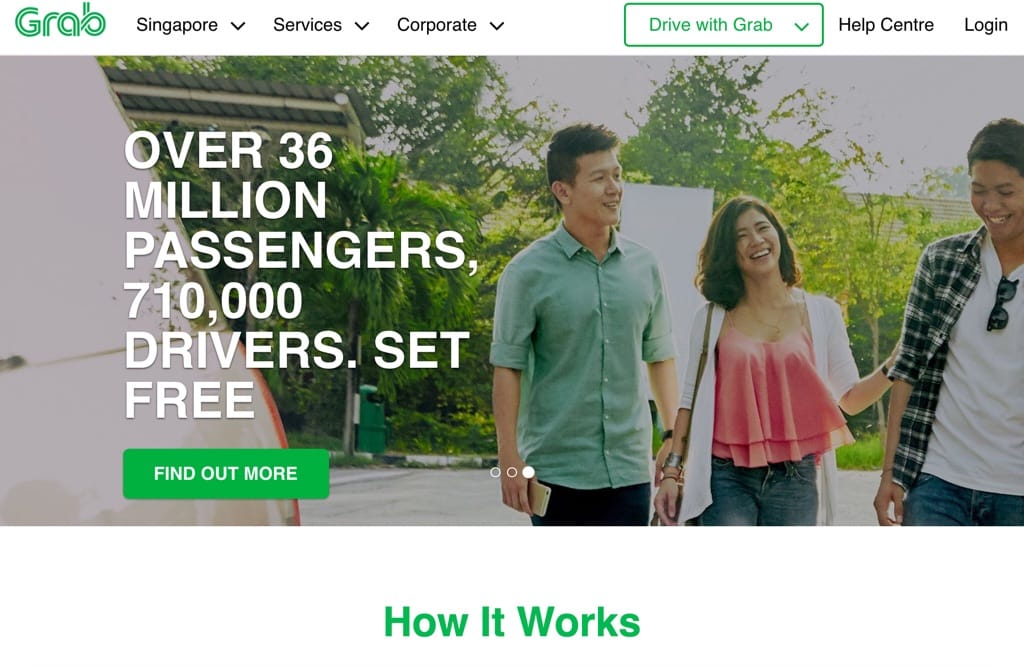
Lesenswerte Analyse von Ben Thompson über den 2-Milliarden-$-Deal von Grab (Paywall), über den wir im Vergleich zum DB-Talixo-Deal gestern schon gesprochen hatten:
It’s hard not to read that massive $2 billion figure as the strongest possible signal to Uber: join up on our terms or die a long slow death in an area of the world that has tremendous long-term promise (thanks to low car ownership) but zero chance of near-term profitability (thanks to competition from Grab and much lower income levels).
2 Milliarden $ sagen: Wir machen es für jeden teuer, hier gegen uns voranzukommen.
Für Uber geht es um den schrittweisen Rückzug aus Märkten, die teuer erkämpft werden müssten. Grabs Südostsasien-Region ist da als nächstes an der Reihe nach China und Russland (Wo sich Yandex.Taxi mit Uber einigte):
Uber has now backed down in two countries (China and Russia), has lost the uber-aggressive Kalanick as CEO, and faces real questions about what its next fundraising round might look like. It is more than reasonable for Softbank and Didi to believe that Uber won’t have the stomach or the wallet for a multi-year slog in Southeast Asia, and this investment is its attempt at a knockout punch.
I suspect Kalanick in particular appreciated that this was the long-term outcome of selling to Didi: Uber got a great deal, but the company was fundamentally weakened going forward, and I’d imagine the deal the company eventually makes with Grab — and I do think they will make one — will be substantially worse. What must be particularly galling for Uber is that, unlike China and Russia where Uber challenged local incumbents, in Southeast Asia Uber was the incumbent and Grab the challenger.
Als ein globaler Ridesharing-Player hat sich nun endgültig der japanische Konzern Softbank herausgeschält, der als Investor neben Didi, Lyft und nun Grab auch in andere, kleinere, lokale Ridesharing-Dienste investiert hat und nun vielleicht auch noch bei Uber einsteigt:
thanks to the massive amount of capital under Masayoshi Son’s control the Japanese investment conglomerate could, with an Uber deal, effectively aggregate the entire car-sharing market. Remember, market power for ride-sharing companies comes from owning the customer, which means the cost that matters is what it takes to acquire a customer; this is where Uber’s strength remains, and it is substantial: thanks to network effects the company’s customer acquisition costs come down over time as the value of the service increases with increased utilization, and churn has long been reported to be negative (i.e. customers use the service more over time).
However, the chief way to fight a network effect (or to accelerate one) is to drive down the price, and that means capital.
Softbank ist ein großer japanischer Mischkonzern, der zum Beispiel 2016 mit der Übernahme von ARM (für umgerechnet 28,6 Milliarden €) für Schlagzeilen sorgte.
Wenn ein deutsches Unternehmen in diesem Spiel mitspielen will, muss es entweder selbst erfolgreich einen Milliarden-Fonds auflegen oder eine vergleichbar große Geldquelle wie Softbank auftun.
Die Investitionssummen, die hierzulande üblich sind, spielen in diesem Markt keine Rolle.
Es lohnt sich deshalb vielleicht, stattdessen in technik-orientiertere deutsche Unternehmen zu investieren. Die Rolle selbstfahrender Autos wird den Ridesharing-Markt, und den Transportmarkt allgemein, noch einmal verändern. Noch muss man da nicht mit Milliardenbeträgen brute-force-artig Netzwerkeffekte heben.
Sprich, auf der Technikseite kann man auch mit den sehr niedrigen Summen mitspielen, die hierzulande investiert werden.
Mittelfristig benötigt die deutsche Wirtschaft aber dringend einen globaleren Blick, um relevant zu bleiben.

